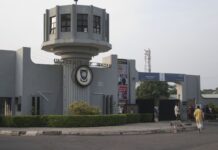Henry Boyo
The news of government’s plans to establish Ruga, or cattle colonies, throughout the Federation, started filtering out after President Muhammed Buhari was returned as President and his party, the APC, also won majority of seats in the National Assembly after the conclusion of February 2019 elections.
Further confirmation of government’s RUGA plans was made on May 21, 2019, by former Minister for Agriculture, Audu Ogbe, who revealed that land had been selected for Ruga programme in all states. The project, according to Mohammed Umar, permanent secretary, federal ministry of agriculture and rural development, would be provided with necessary facilities to ensure that cattle breeders have access to grazing land, potable water, regular power supply, with provision also for, living quarters and schools for the cattle rearers’ children.
Unexpectedly, however, the cost of establishing the Ruga settlements has never been revealed, nor provided for in the 2019 budget! Consequently, critics wonder why the haste to create herdsmen’s settlements, at a time, Nigeria’s major roads are besieged, according to several reports of victims, by alleged Fulani herdsmen, who kidnap, terrorise and kill travellers on our highways.
Curiously, government, so far, has not shown any serious commitment to reduce the intensity of brigandage and kidnapping and farmland destruction by these herdsmen who were, earlier identified by Mr. President himself as ‘fleeing’ fighters from Mohammed Gadafi’s Libya!
Equally worrisome also, is the latest government directive for all migrants, amongst whom are thousands of herdsmen and migrants from Niger, Chad and other Sahelian countries to register their immigration status, to presumably, regularize their stay, when Nigerians, in contrast, are regularly deported or promptly repatriated from several countries within and outside Africa for not having the requisite qualification to be residents!
Nevertheless, Miyetti Allah, the Cattle Breeders Association remains an unrepentant supporter of their life patron’s Ruga plans, and may threaten Nigeria’s unity, with provocative statements, which have, unexpectedly, attracted no reprimand.
Ironically, the President’s team has not also shown much enthusiasm, for the creative offer from Governor Abdullahi Ganduje of Kano State, to provide adequate land and facilities to accommodate all herdsmen for the development of integrated cattle ranches, which would support an economic value change for slaughtering, packaging and effective distribution of beef and dairy products nationwide.
Invariably, the new railway line proposed from Niger Republic to Katsina, in Nigeria, together with Nigeria’s notoriously porous borders will likely complicate the issue of migration and domestic insecurity, while adherence to ECOWAS and AfCFTA protocols may attract an influx of jobless migrants into Nigeria.
Nonetheless, the leaders of Nigeria’s ruling party still sway, unabashedly, in locked step with Mr. President’s body language on the nationwide establishment of RUGA, even when traditional leaders and opinion leaders throughout Southern Nigerian and the Middle Belt have openly rejected Ruga.
Similarly, the Central Bank Governor, Godwin Emefiele, who was recently rewarded with another five-year term, by President Buhari, despite CBN’s failure to prevent massive devaluation of Naira in 2016, and its inability to foster price stability that will drive inclusive growth, has enthusiastically also aligned with his benefactor to deny official forex to milk importers, so that they will be compelled to develop the local dairy industry.
Arguably, nonetheless, CBN’s forex ban is clearly, precipitate and probably not well thought through. Although, Emefiele has indicated that the forex ban will save Nigeria about $1.2bn annually, the drawbacks of this ban are also quite formidable. Arguably, the welfare of the current major players in the milk market may not have been fairly considered.
Notwithstanding, it would certainly be more productive for CBN to engage local milk producers and support them with reasonably priced loans below five per cent for them to steadily develop and expand a comprehensive dairy business sector. In such event, stakeholders would be encouraged to adopt high lactation and tropical disease resistant foreign breeds, to set up a dairy value chain, with standard equipment and facilities for training more farm workers and technicians, while a tested collection and distribution network would be established, before any talk of forex denial to milk importers.
Invariably, this process may require a four to five-year gestation period, during which time, access to forex for milk imports, can be subject to a stepwise reduction annually. Ultimately, however, if the rules of ECOWAS and AfCFTA membership become applied, such currency restriction to free trade, may not be applicable to milk imports from any country in Africa.
Predictably, CBN’s forex denial for
milk, FURA, imports, would have a counter-productive outcome; for example, the
forex scarcity induced by the ban would drive smugglers to increase demand for
dollars, and inadvertently spike the parallel Naira rate above N370=$1.
Invariably, higher dollar rates will similarly trigger price increases for a
wide range of other grey imports. Instructively, rice importation is a case in
point; for example, even though rice importers are also denied official forex,
the reality however, is that, our neighbour, Benin Republic with barely 12
million people, has now become one of the largest importers of rice in the
world. Nigeria is undeniably, the ultimate destination for the shiploads of
rice imported into Benin Republic annually with BDC sourced dollars.
Ultimately, Nigeria’s Government receives no duties on the huge rice imports,
funded by billions of dollars purchased from BDCs for smuggled rice, but,
Bureau-de-Change are ironically, also ultimately funded by CBN!
Predictably, CBN’s forex denial for milk, FURA, imports, would have a
counter-productive outcome; for example, the forex scarcity induced by the ban
would drive smugglers to increase demand for dollars, and inadvertently spike
the parallel Naira rate above N370=$1. Invariably, higher dollar rates will
similarly trigger price increases for a wide range of other grey imports.
Instructively, rice importation is a case in point; for example, even though rice importers are also denied official forex, the reality however, is that, our neighbour, Benin Republic with barely 12 million people, has now become one of the largest importers of rice in the world. Nigeria is undeniably, the ultimate destination for the shiploads of rice imported into Benin Republic annually with BDC sourced dollars.
Ultimately, Nigeria’s Government receives no duties on the huge rice imports, funded by billions of dollars purchased from BDCs for smuggled rice, but, Bureau-de-Change are ironically, also ultimately funded by CBN!
Predictably, the new forex restriction to local milk companies, will impact negatively on the turnover and profitability of these companies; similarly, corporate tax income as well as employee tax payments to Federal and State governments, respectively, would decline. Ultimately, the real product of CBN’s blind forex denial to milk producing companies, would be reduced income from all fronts, i.e. government, distributors, transporters, packaging manufacturers, etc, while milk companies will be forced to optimize and retrench more staff!
Comparatively, however, the $1.2bn forex, spent by milk producers on imports, is actually a small fraction of what NNPC spends, annually, to import fuel. Consequently, any drive for forex conservation, to stimulate import substitution should probably start with the Nigerian market for PMS (petrol). Regrettably, however, despite Nigeria’s huge endowments with oil resources, over 90 per cent of Nigeria’s PMS is presently imported and paid for in dollars! So the question is, why the CBN does not also deny forex access to fuel importers, so that more local fuel refineries will be fast-tracked as expected from the forex denial to milk producers?
Furthermore, despite the unfettered forex access for petrol imports by NNPC, possibly 50 per cent of Nigeria’s imports are actually smuggled through porous borders to subsidize the economy of neigbouring ECOWAS nations with possibly over $10bn annually.
Notably, however, according to media reports, the Miyetti Allah have readily aligned themselves with CBN’s sustenance of the restriction of forex for milk importation!!


























































